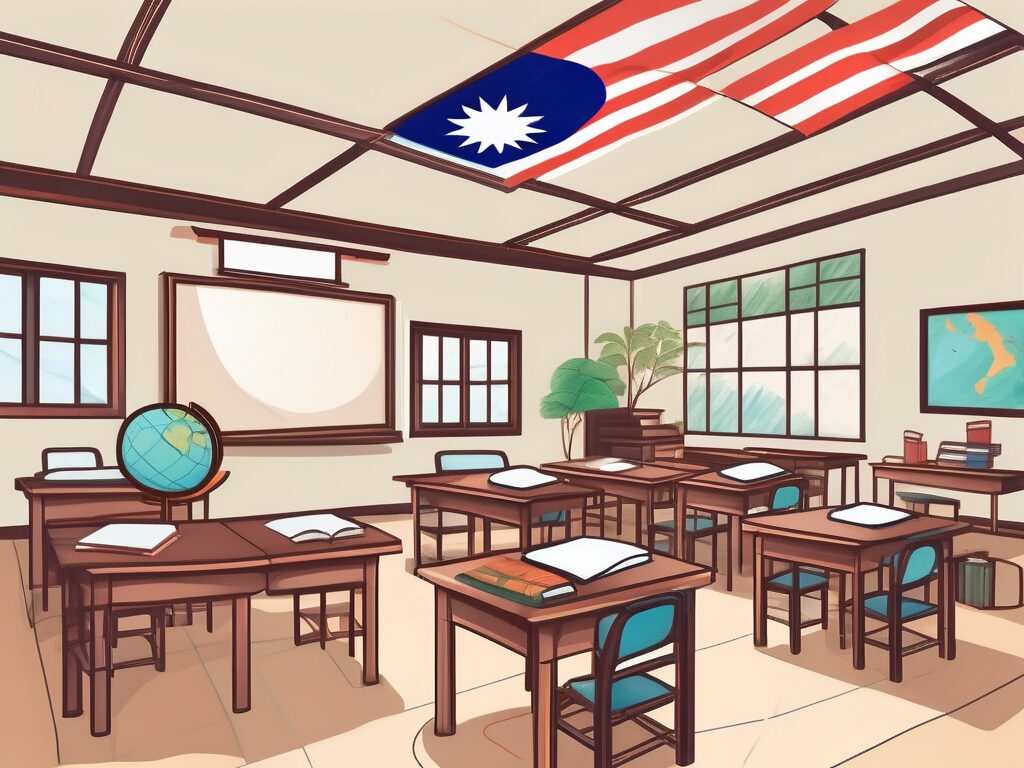Moving to a new country is always an exciting yet challenging experience. For international school teachers, the transition to Thailand can be particularly daunting due to the cultural differences. However, with a bit of preparation and an open mind, you can make the most of your time in this vibrant country. Here are ten tips to help you adapt to the Thai culture.
Understanding Thai Culture
Before you step foot in Thailand, it’s essential to gain a basic understanding of Thai culture. This will help you avoid cultural faux pas and make your transition smoother. Here are a few key points to consider.
Respect for the Monarchy
The Thai monarchy is deeply respected in Thailand. It’s important to always show respect towards the King and the Royal Family. This includes standing for the national anthem and royal anthem, which are played in public places such as cinemas and parks.
It’s also illegal to defame, insult or threaten the monarchy, a law that extends to both spoken and written words, including social media posts. So, it’s best to refrain from discussing the monarchy unless it’s in a positive light.
Buddhism and Religion
Buddhism is the primary religion in Thailand, and it plays a significant role in daily life. Temples, monks, and Buddha images are highly respected. When visiting temples, dress modestly and remove your shoes before entering.
Religious tolerance is also highly valued in Thailand. While the majority of Thais are Buddhists, there are also significant Muslim, Christian, and Hindu communities. It’s important to respect all religious beliefs and practices.
Adapting to Thai Social Norms
Understanding and adapting to Thai social norms is crucial for a smooth transition. Here are some tips to help you navigate social situations.
Wai Greeting
The wai is a traditional Thai greeting that involves pressing your palms together at chest level and bowing slightly. It’s used to show respect and is often accompanied by the word ‘Sawasdee’. The higher the hands are held and the deeper the bow, the more respect is shown.
As a foreigner, you’re not expected to initiate the wai, but it’s polite to return it. It can be a bit tricky to get the hang of when and how to wai, but your Thai colleagues and friends will be more than happy to guide you.
Face and Respect
‘Face’ is a complex concept in Thai culture that refers to a person’s reputation, dignity, and prestige. It’s important to avoid causing someone to lose face. This means avoiding confrontation, criticism, or embarrassing someone in public.
Respect for elders is also deeply ingrained in Thai culture. Always show respect to those older than you, whether they’re your colleagues, superiors, or even your students’ parents.
Living and Working in Thailand
Living and working in Thailand can be a rewarding experience if you’re prepared. Here are some practical tips to help you adapt.
Language
While English is widely spoken in international schools and tourist areas, learning some basic Thai can go a long way. It can help you navigate daily life, build relationships with locals, and show respect for the culture.
There are plenty of resources available, from language schools to online courses and apps. Don’t worry about mastering the language; even a few phrases can make a big difference.
Food and Eating Habits
Thai food is famous worldwide for its flavours and variety. However, it can be quite spicy for those not used to it. Don’t be afraid to ask for less spice when ordering food.
Eating is a social activity in Thailand, and it’s common to share dishes. Also, remember that it’s customary to use a spoon and fork instead of chopsticks for most Thai dishes.
Climate
Thailand’s tropical climate can be a shock to those used to cooler climates. It’s hot and humid most of the year, with a rainy season from May to October. Make sure to stay hydrated, wear light clothing, and invest in a good quality umbrella.
Despite the challenges, adapting to a new culture can be an enriching experience. With these tips in mind, you’ll be well-prepared for your adventure as an international school teacher in Thailand. Embrace the differences, learn from your experiences, and most importantly, enjoy your time in the Land of Smiles.
Enhance Your Teaching Career in Thailand with The IQTS at UWE
As you navigate the cultural nuances of teaching in Thailand, consider bolstering your qualifications with the International Qualified Teacher Status (iQTS) programme at UWE. This Level 7 qualification is designed to help you overcome common barriers such as stringent qualification requirements, limited career progression, and isolation from professional communities. With the iQTS, you can expect a significant increase in interview callbacks, promotion rates, and salary, as well as a deeper connection to global educational systems and professional networks. Embrace the opportunity for professional development with flexible online study options that fit your busy schedule. Make Your Next Step today and join a community of educators who are transforming their international teaching careers.

